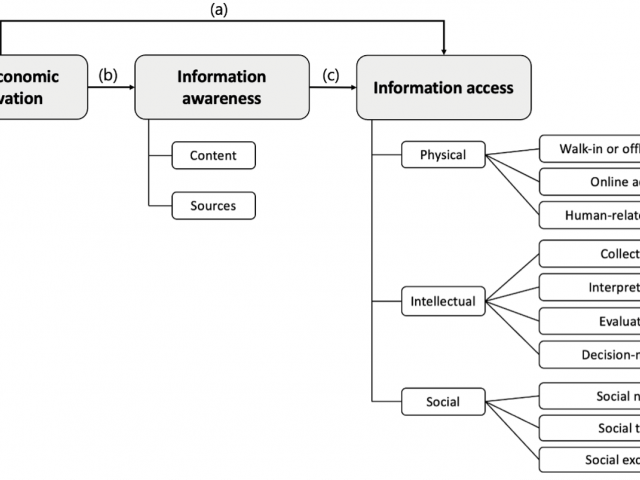
Purpose: This study investigated the relationship among information awareness, access, and socioeconomic deprivation in the context of local health information. Drawing on theories of information poverty and the digital divide, this study examined how socio-economic deprivation influences individuals’ ability to become aware of and access local health information.
Methodology: Using survey data from three jurisdictions in South Korea’s Seoul Metropolitan Area, this study examined how socio-economic factors influence information awareness and access at both the macro level (jurisdiction) and the micro level (individual).
Findings: The findings revealed significant differences in information awareness and access across jurisdictions with varying levels of socio-economic deprivation. Participants from areas with lower socioeconomic deprivation reported greater confidence in their ability to access and evaluate health information. At an individual level, socio-economic deprivation negatively affected information awareness and access. Information awareness was shown to mediate the effects of socio-economic deprivation on information access, although the degree of mediation varied across different dimensions of information access, such as physical, intellectual, and social access.
Originality: The study contributes to the literature focused on digital divide, information poverty, and local information landscapes by studying information awareness as a mediator in shaping information access. The findings of this study can guide health information service providers and system designers in developing customized strategies that cater to the unique needs of various communities and socio-economic groups.
* Myeong Lee is the corresponding author.
* This study was supported by the Samsung Research Fund of Sungkyunkwan University (2022). Ethical concerns regarding the survey protocols and processes were approved by the Institutional Review Board (IRB) of the first author’s institution (IRB #SKKU 2023-10-013).